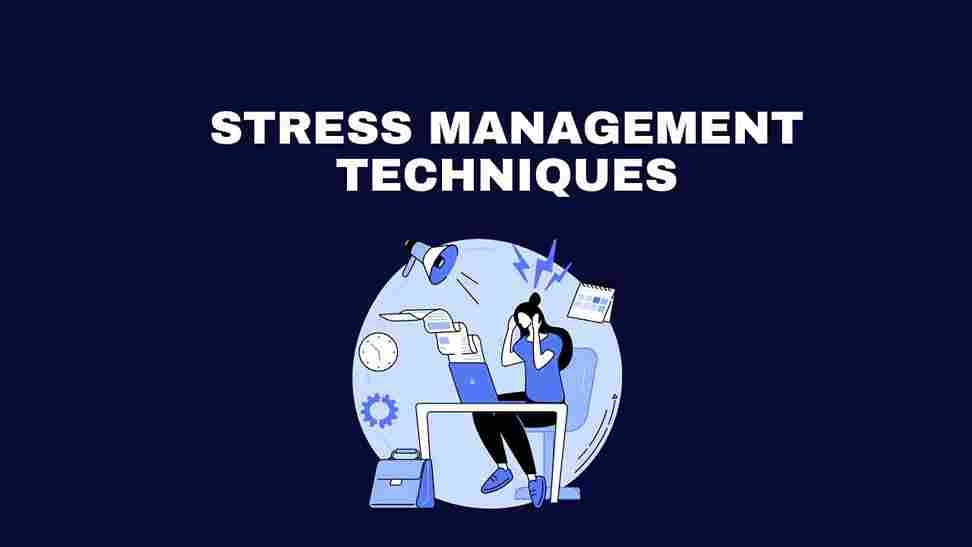In today’s fast-paced world, stress has become an inevitable part of our lives. From work-related pressures to personal challenges, stress can take a toll on our physical and mental well-being. However, the good news is that there are effective stress management techniques that can help you navigate through life’s demands with grace and resilience. In this comprehensive guide, we’ll explore various coping strategies to help you conquer stress and lead a more balanced, harmonious life.
Understanding Stress
Before we delve into the techniques for managing stress, it’s essential to have a clear understanding of what stress is. Stress is your body’s natural response to a perceived threat or challenge. It triggers the release of hormones such as cortisol and adrenaline, preparing you for the “fight or flight” response. While stress can be beneficial in certain situations, chronic stress can have detrimental effects on your health.
Identifying Stressors
The first step in effective stress management is identifying the sources of your stress. These stressors can vary from person to person, but common ones include:
- Work-related stress: Pressure from deadlines, demanding bosses, and long hours can contribute to work-related stress.
- Financial stress: Worries about bills, debt, or financial instability can be a significant source of stress.
- Relationship issues: Conflict within personal relationships, whether with family, friends, or partners, can lead to stress.
- Health concerns: Dealing with health issues, either your own or a loved one’s, can be emotionally taxing.
- Life changes: Major life events like moving, marriage, divorce, or the birth of a child can trigger stress.
Also check: 10 Daily Wellness Habits for a Healthier Life
Coping Strategies
1. Mindfulness Meditation
Mindfulness meditation is a powerful technique that involves staying present and fully engaged in the moment. By practicing mindfulness, you can reduce anxiety and improve your overall well-being. Dedicate a few minutes each day to meditate, focusing on your breath and letting go of racing thoughts.
2. Exercise Regularly
Physical activity is a natural stress reliever. Engaging in regular exercise helps release endorphins, which are known as “feel-good” hormones. Whether it’s a brisk walk, yoga, or hitting the gym, find an activity you enjoy and make it a part of your routine.
3. Healthy Eating Habits
Nutrition plays a significant role in managing stress. Avoid excessive caffeine and sugar, which can exacerbate anxiety. Instead, opt for a balanced diet rich in fruits, vegetables, whole grains, and lean proteins.
4. Time Management
Effective time management can alleviate work-related stress. Prioritize tasks, set achievable goals, and avoid overcommitting yourself. Delegate when possible, and remember that it’s okay to say no when necessary.
5. Seek Support
Don’t hesitate to seek support from friends, family, or a mental health professional when you’re feeling overwhelmed. Talking about your feelings can provide valuable insights and emotional relief.
6. Relaxation Techniques
Incorporate relaxation techniques such as deep breathing exercises, progressive muscle relaxation, or aromatherapy into your daily routine. These methods can help calm your mind and reduce stress.
Also check: Creating Healthy Sleep Patterns for Restful Nights
7. Establish Boundaries
Setting clear boundaries in both your personal and professional life is crucial for stress management. Learn to say no to additional responsibilities or commitments that may overwhelm you. Protect your personal time and prioritize self-care.
8. Stay Organized
Disorganization can contribute to stress. Create to-do lists, use calendars, and declutter your workspace to enhance your productivity and reduce the chaos in your life.
9. Practice Gratitude
Gratitude can shift your focus from what’s causing stress to what you’re thankful for. Regularly acknowledge and appreciate the positive aspects of your life. Consider keeping a gratitude journal to document these moments.
10. Social Connection
Maintaining healthy social connections is essential for emotional well-being. Spend time with friends and loved ones, engage in social activities, and build a support network to lean on during challenging times.
11. Time for Hobbies
Engaging in hobbies and activities you enjoy can be an excellent stress reliever. Whether it’s painting, playing a musical instrument, or gardening, these pursuits can provide a welcome break from daily stressors.
12. Sleep Hygiene
Quality sleep is paramount for stress management. Establish a consistent sleep schedule, create a comfortable sleep environment, and limit screen time before bedtime to ensure you get the rest your body needs.
Long-Term Stress Management
While the strategies mentioned above are effective for immediate stress relief, it’s also essential to consider long-term stress management. Chronic stress can have severe health consequences, so taking proactive steps to address it is crucial:
13. Professional Help
If stress becomes overwhelming or chronic, consider seeking the guidance of a mental health professional. Therapy and counseling can provide you with valuable tools and coping mechanisms.
14. Lifestyle Changes
Evaluate your overall lifestyle and make necessary adjustments. This may include reevaluating your career choices, prioritizing a work-life balance, or making healthier choices in your daily routine.
15. Mind-Body Practices
Explore mind-body practices like yoga and tai chi. These activities not only promote physical well-being but also foster relaxation and stress reduction through their meditative components.
Final Thoughts
In today’s hectic world, stress management isn’t just a luxury; it’s a necessity. By incorporating these stress management techniques into your daily life, you can build resilience and better navigate the challenges that come your way.
Remember that managing stress is an ongoing journey. It’s perfectly normal to experience stress from time to time, but with the right strategies and support systems in place, you can maintain a healthier, more balanced life.
